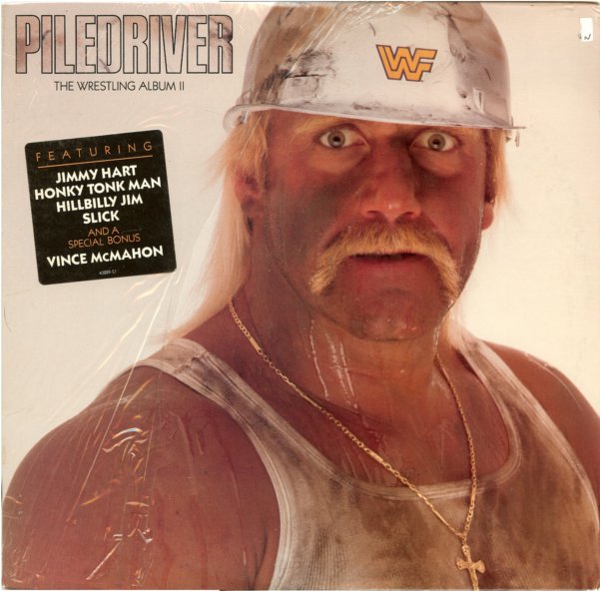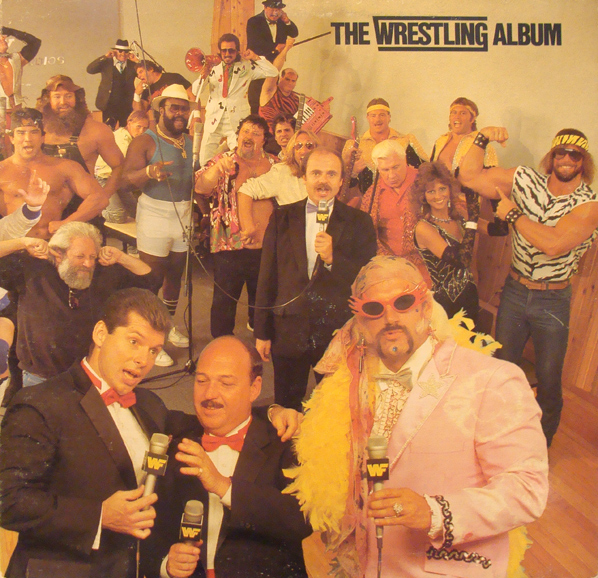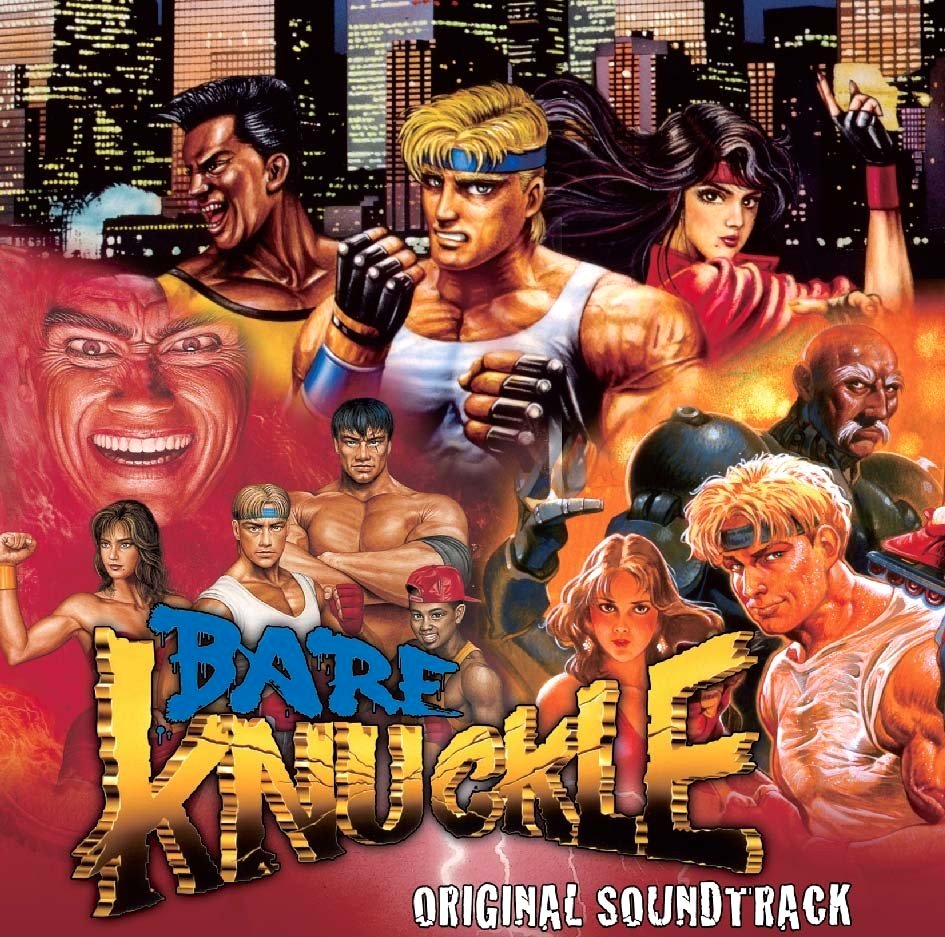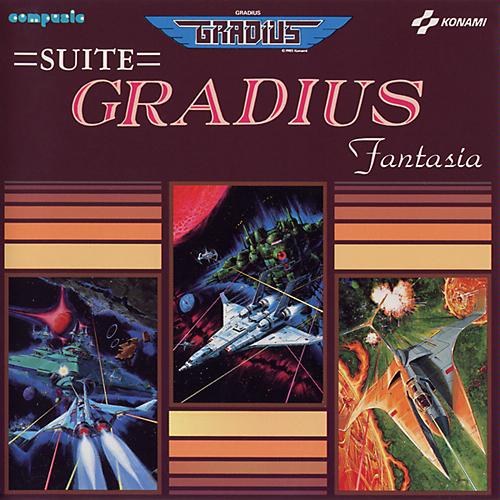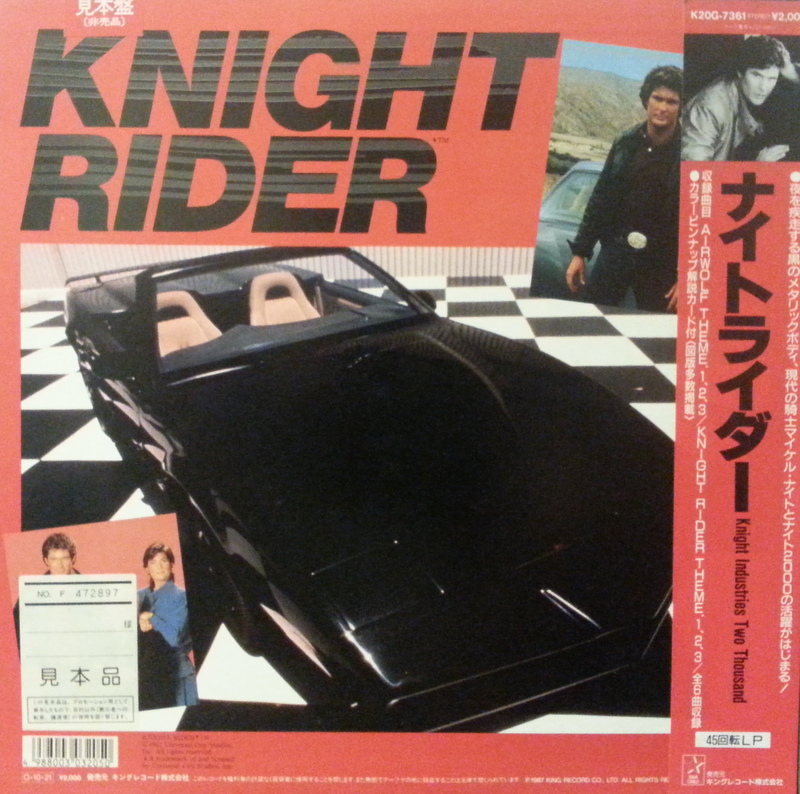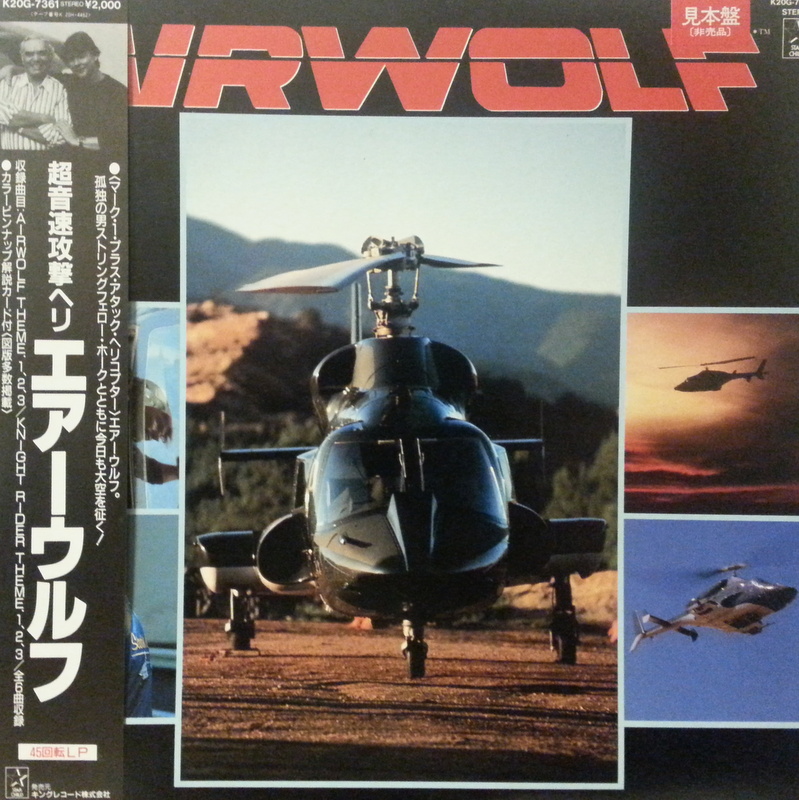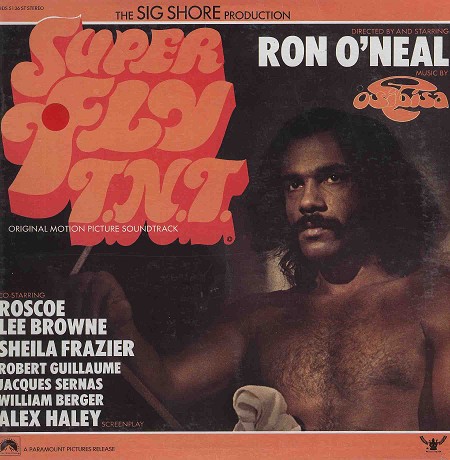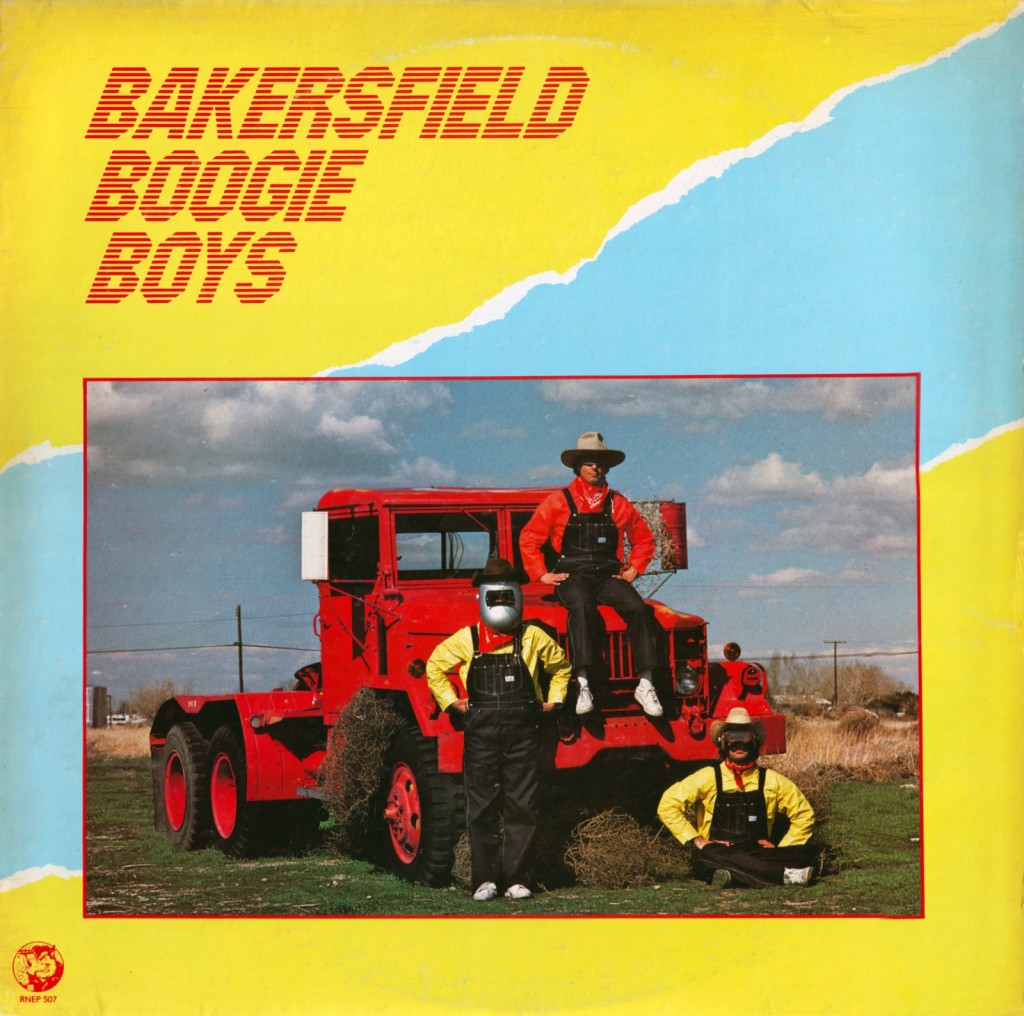
I’ve written about Yen Records before, but in case you’re just joining us for the first time – Yen Records was a sub-label of Alfa Records, launched in the early-80s by Japanese electronic superstars Yellow Magic Orchestra (YMO).
The label pretty much became a clearinghouse for YMO to release music by their friends and colleagues. YMO members Yukihiro Takahashi and Haruomi Hosono often performed on many Yen releases, as did Ryuichi Sakamoto, albiet to a lesser extent.
In 1984, Yen Records founder Kunihiko Murai passed away, and this record is a tribute to him – featuring many exclusive tracks and remixes by a wide variety of Yen artists. It’s a great record, and an excellent summary of the Yen label. I hope you like it.
Yen Artists
God Be With Us Till We Meet Again
Platonic Stochastic
I don’t know who the “Yen Artists” are, but if the rest of this album’s tracklisting is any indication, I suspect that these tracks include all three members of YMO, Tachibana, Koji Ueno and Jun Togawa, among others. The first track is, I think, an adaptation of an old hymn, and it was written by Yukihiro Takahashi and Haruomi Hosono. The second is a very unusual, almost musique conrete, composition that was written by Ueno.
Yellow Magic Orchestra
Rydeen (Remix Version)
I own 27 different versions of “Rydeen,” so I’m fairly confident in saying that this remixed version is exclusive to this album. It’s not all that different than the original cut, it actually comes off more like a single edit with some really random sound effects thrown in, but goddamn if it isn’t a great piece of synthpop.
Hajime Tachibana
Rock (New Recording)
Previous Tachibana I unearthed featured him sounding like Art Of Noise. This has him sounding like Art of Noise meets 80s-electro era Herbie Hancock. Robot vocals! Sweet keyboard riffs! Sequencers! Loving every minute of this.
I bet Daft Punk have this track on vinyl.
Sandii & The Sunsetz
Sticky Music (Remix French Version)
I posted some Sandii stuff a few months back. I’ll probably be deleting those links in a day or so. So if you’re interested in them, check that post out.
Sandii is fucking great though and I love her. So expect more Sandii on Lost Turntable in the near future.
Guernica
Maronie Dokuhon (Remix Version)
Guernica is Kenji Ueno and Jun Togawa. Seperately they released classical piano music, synthpop, prog rock and damn near everyting in between. Combined they sound like some bizarre fusion of opera, cabaret and YMO backing tracks. Like Klaus Nomi? You’ll probably like this.
Miharu Koshi
Petit Paradis (English Version)
One of the many idol-type singers who Haruomi collaborated with during the Yen years. I don’t know how popular she was during her peak, but she’s continued to be incredibly prolific, sometimes going through periods of releasing albums on a near annual basis. This is a cute song, very typical of the kind of stuff that Hosono was releasing with other artists at the time.
Inoyama Land
Pokala (Remix Version)
Inoyama Land were a duo comprised of Makoto Inoue and Yasushi Yamashita. In 1983 they put out their first album, Danzindan-Pojidon, on Yen Records. It’s a pretty great collection of ambient electronica, and if you dig Tangerine Dream, Diskjokke or The Orb, I think you might like it. It’s never been released on CD outside of the super-pricey Yen Box though, so it’s probably a bit hard to find. I’ll probably put it up here someday.
The group also has two other releases, both coming out years later in the late 90s. I think at least one is a compilation of unreleased material. Outside of Inoyama Land both Yamashita and Inoue were members of a group called Hikashu, one of the only Japanese synth-pop acts from the era who don’t seem to have any YMO connections.
Keiichi Ohta
Seean No Kodomoichiba (Remix Version)
This man only released one album, the utterly strange collaborative effort with no English title that is based on an obscure Japanese novel. This track is a remix of a song from that album, and features operatic vocals by Makito Hayashi, who never released anything on her own. The track was written by Keiichi, but was produced by Hosono and Takahashi, and features keys by Koji Ueno, practically making this a YMO track.
Koji Ueno
Adagietto (Remix Version)
Ueno is on so many tracks on this record that it’s nearly an Ueno LP. All this Ueno has left me wanting to know more about him, so I went digging on Discogs. Apparently this man is (or at least was) a goto studio player in Japan, and has appeared on dozens of albums, including many from YMO members and associates. From what I can gather, he’s an accomplished pianist, violinist and bass player – but I wouldn’t be surprised if he’s an accomplished marimba, saxophone and flutist as well. Dude seems like the type.
This is a very mellow piece, unlike just about anything else on the album – classical almost. Very relaxing.
Yukihiro Takahashi
It’s Gonna Work Out (Remix Version)
This is a remixed version of a track that appears in its original version on Takahashi’s 1982 album What, Me Worry? Like pretty much all things Takahashi-related from the 80s, it’s pure gold. The more of Takahashi’s solo stuff I hear, the more I think he was the most talented pop musician in YMO. Sure Hosono and Sakamoto may be more technically gifted and diverse than Takahashi, but I’ve never heard pop music by either that’s as good as some of the stuff on Takahashi’s solo records. The man is incredible.
Super Eccentric Theater
Beat The Rap (Remix Version)
Super Eccentric Theater (Or S.E.T.) was a comedy troupe that was on Yen Records. I think I can hear Yukihiro on this track in the chorus.
This is their send-up of rap music.
It’s not funny.
Testpattern
Modern Living (Remix Version)
Testpattern released one album, 1982’s Apres-Midi, which I snagged a while back. I love it, even if they do sound a bit like YMO also-rans with a more mellow, easy-listening sound. This is a remixed version of a track from that album, and it’s better than the album version thanks to some nice added synths.
Jun Togawa
Do Not Renai (New Recording)
The singer of Guernica strikes again, this time with a nice synthpop ballad. This sounds like early Kate Bush. So those with a low tolerance for squeaky vocals may want to proceed with caution.
Interior
Hawks (Remix Version)
Interior put out a couple of records in the early 80s. I have one, and to be honest it’s nothing to write home about. Their instrumental tracks were okay, but whenever they tried to add vocals to the mix they just sounded bland and boring. This is an okay song, but nothing really memorable either.
Tamao Koeike
Kagami No Naka No Jugatsu (Remix Version)
The name may read Tamao Koeike in the LINER notes, but this is a YMO track. They wrote it, and they perform all the instrumentation on it. Koeike is just the singer. And she apparently didn’t really impress anyone at Yen Records, as the single for this track was the only thing she ever released. A shame, as it’s not a bad tune and she has a nice voice.
Haruomi Hosono
Yunemiru Yakusoko (Original Version)
Typical Hosono stuff from the 80s – meaning that it’s really damn good.


